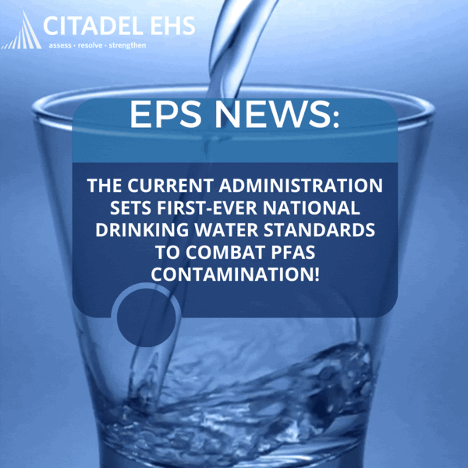
“EPA News: The current Administration Sets First-Ever National Drinking Water Standards to Combat PFAS Contamination!”
April 10th marks a monumental step forward in safeguarding public health as the Biden-Harris Administration unveils the first national, legally enforceable drinking water standard to tackle per- and polyfluoroalkyl substances (PFAS), commonly known as ‘forever chemicals’. This landmark rule, a crucial part of EPA’s PFAS Strategic Roadmap, will shield communities from the harmful effects linked to PFAS exposure, including deadly cancers and developmental damage.
Notably, this standard will reduce PFAS exposure for approximately 100 million people, preventing thousands of deaths and tens of thousands of serious illnesses. With an unprecedented $9 billion investment through the Bipartisan Infrastructure Law, the administration is poised to support states, territories, and communities in implementing PFAS testing and treatment measures.
Testing for the presence of PFAS in drinking water involves various methods to ensure accurate detection and quantification. Commonly utilized techniques include high-performance liquid chromatography (HPLC), gas chromatography-mass spectrometry (GC-MS), and liquid chromatography-mass spectrometry (LC-MS). These methods enable the separation, identification, and measurement of individual PFAS compounds in water samples. Additionally, immunoassay-based methods, such as enzyme-linked immunosorbent assays (ELISA), offer rapid screening capabilities for PFAS contamination.
Sampling protocols often involve collecting water samples from different points within a distribution system and analyzing them for PFAS concentrations. With advances in analytical instrumentation and techniques, laboratories can efficiently monitor PFAS levels in drinking water to ensure compliance with regulatory standards and protect public health.
Contact Citadel EHS to leverage our expertise in environmental consulting and ensure thorough drinking water testing for your projects, safeguarding both public health and regulatory compliance.
